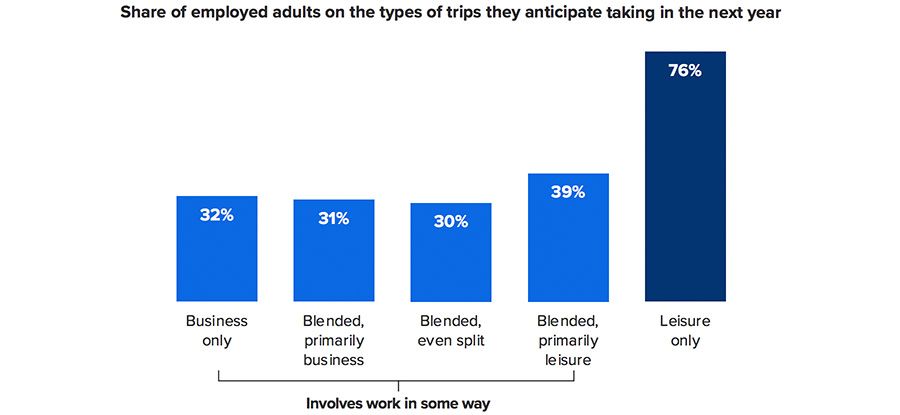
Business travel will not recover pre-pandemic levels
[ad_1]
While the tourist industry has rebounded following the relaxation of Covid-19 lockdowns around the world, business travel is making no such recovery. As airlines continue to struggle to bounce back from a hard two years, they may have to adapt their business models to life without one of their most lucrative service lines.
Business travel has been a crucial part of airline revenues for decades. While the volume was always lower – pre-pandemic, business travellers made up just 12% of airline passengers – they generally paid higher rates than other customers, flew more regularly, and subsequently were twice as lucrative – accounting for as much as 75% of profits.
Because business travel is tax-deductible, it is led beholden to market forces such as inflation – meaning while leisure travellers will often be forced to look for the most economical mode of transport, businesses are generally willing to pay more to book last-minute and non-stop flight options. At the same time, businesses usually allow employees to leverage business travel to earn and keep frequent flyer miles and points, which are increasingly valuable to airlines as a source of revenue and data.

All this means that, as the cost-of-living crisis sees households scale back on ‘non-essential’ spending such as jet-setting holidays, airlines might traditionally have hoped business travel would see them through the drop in income from leisure travel. However, a new report suggests that behavioural changes from the pandemic months mean airlines should brace for leaner times than usual amid the coming recession.
After peaking at approximately $1.4 trillion in 2019, during lockdown the expenditure made by business travellers worldwide plummeted to the lowest figure reported since 2005. While business travel spending did rise 5.5% year-over-year since the re-opening of borders, to $697 billion in 2021, that figure still pales in comparison – and according to Morning Consult, it may never fully hit the heights of 2019 again.
The consultancy surveyed more than 16,000 people across the Americas, Europe, and the Asia-Pacific region between autumn 2021 and summer 2022. Across all markets, a growing portion of adults now believed they would never take a business trip again. This was most pronounced in France, where 58% would no longer travel for work, followed by the UK – where 55% of workers did not expect to take a business trip again.

Morning Consult suggests that this is due to the changing nature of work in the post-lockdown era. While borders may be open once more, many firms have found that they actually don’t need to be on site to offer effective services. This was a pronounced theme within the consulting industry throughout the pandemic, for example. Representatives of the industry interviewed by Consultancy.uk regularly stated that while it had been a travel-intensive line of work before, they had found they were able to provide advisory work digitally with relative ease.
The likelihood of business travel for workers has continued to fall even after lockdown rules were rescinded for this reason. With digital home-working now enabled, 76% of those surveyed told Morning Consult they would only travel for leisure from now on – while the number travelling for business saw a 10-point decline in spring of 2022.
It has not helped that airlines have not represented themselves particularly well in the last 12 months. While leisure travel has spiked, airports have failed to adequately build capacity to deal with the demand – and short-staffed transport hubs have made headlines for huge lines throughout the summer as a result. Subsequently, would-be business travellers feel reluctant to trust airlines, as they failed to foresee delays and disruptions. Instead, the former travellers are opting to do business over Zoom.
[ad_2]
Source link


